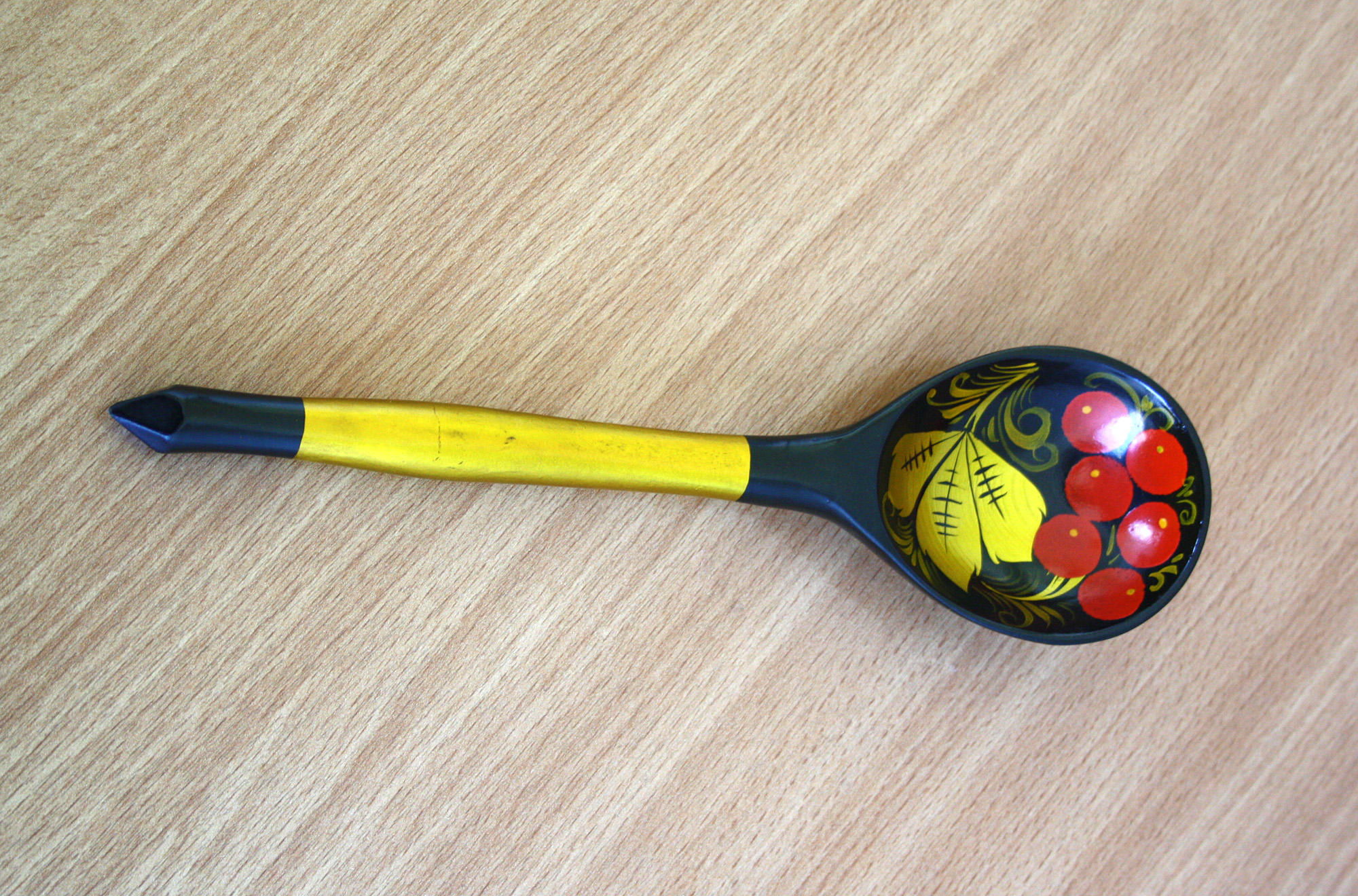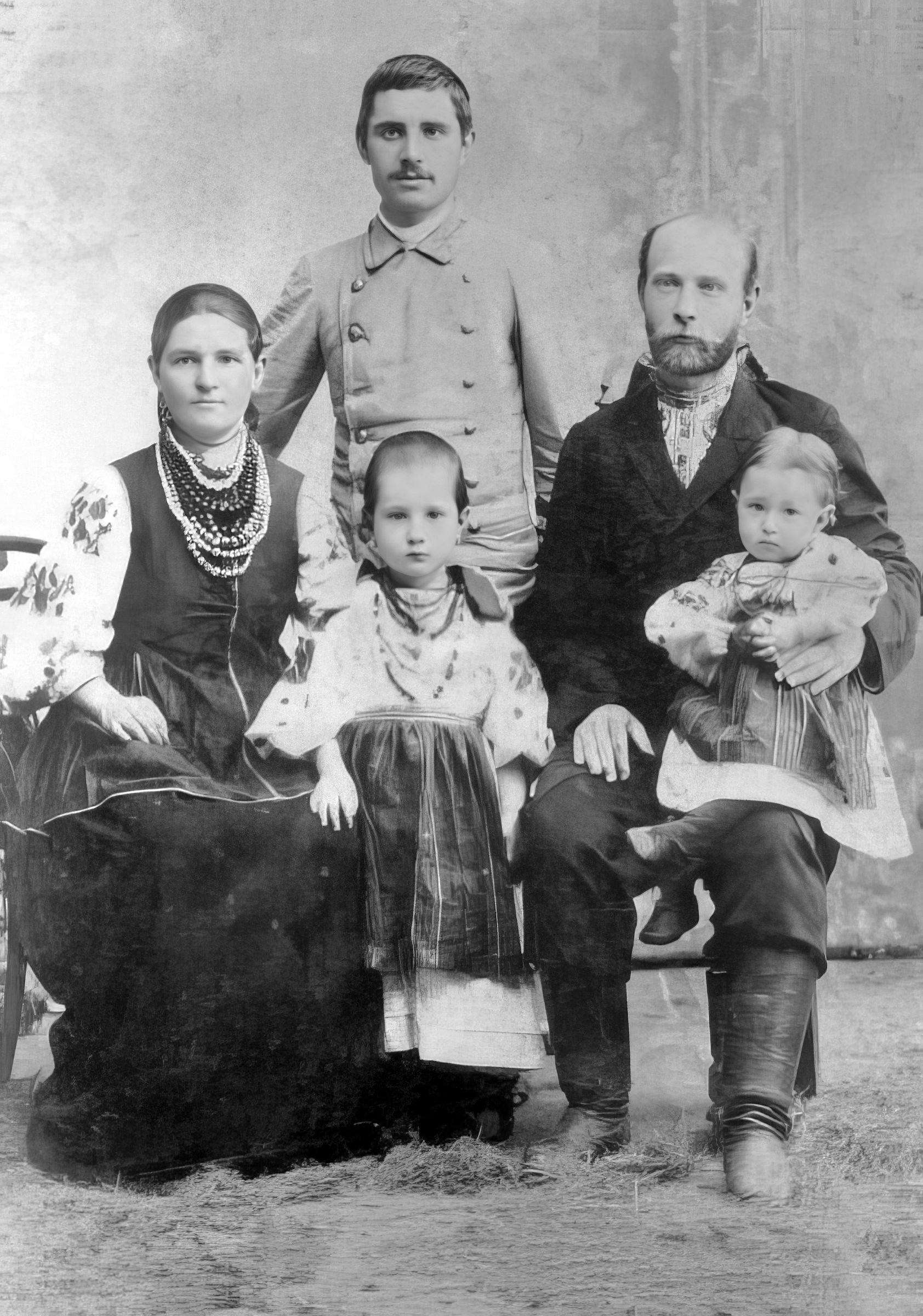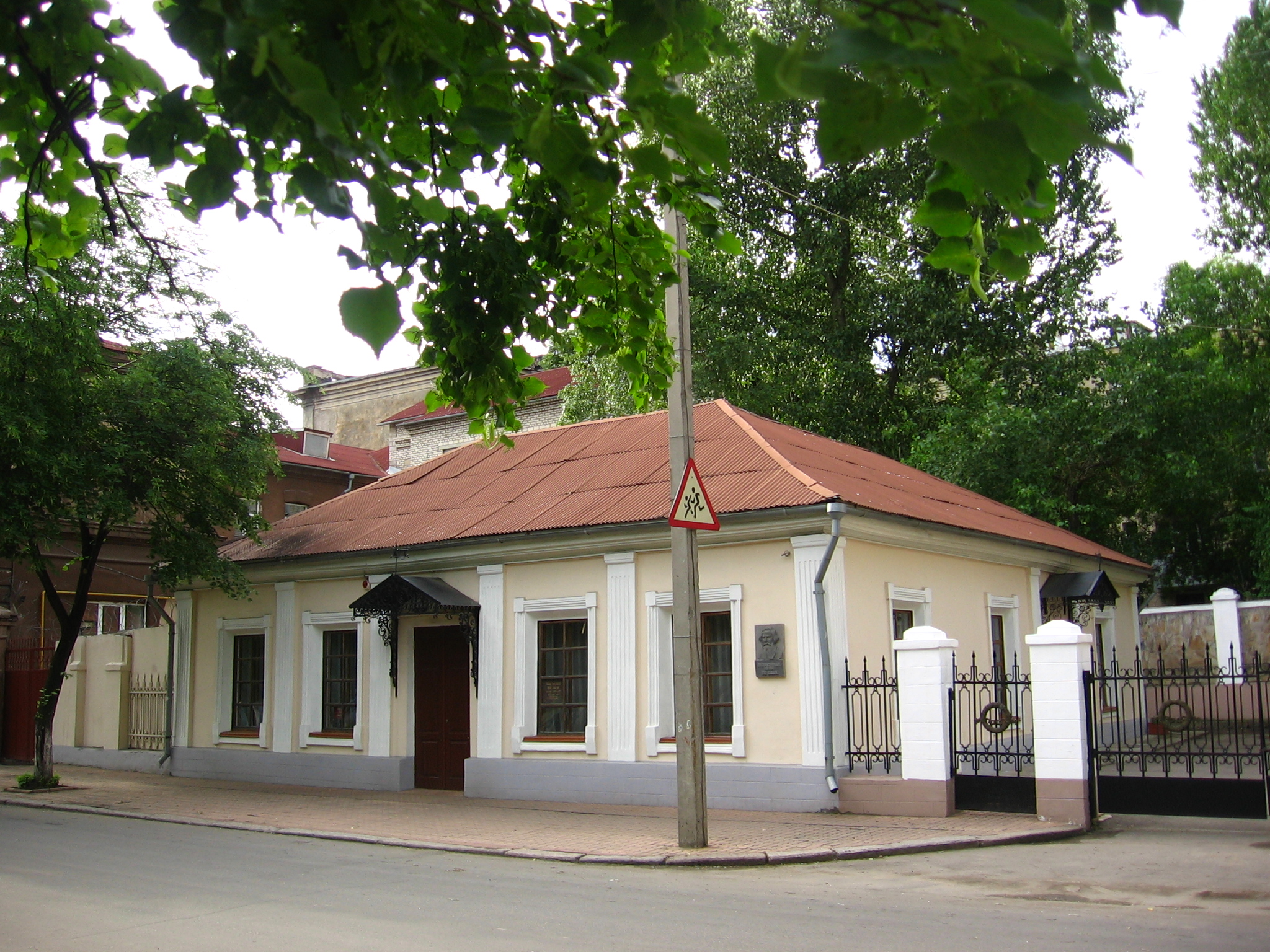|
Treshchotka
A treshchotka ( rus, трещо́тка, p=trʲɪˈɕːɵtkə, singular; sometimes referred to in the plural, treshchotki, rus, трещо́тки, p=trʲɪˈɕːɵtkʲɪ) is a Russian folk music idiophone percussion instrument which is used to imitate hand clapping. It consists of a set of small boards on a string that are clapped together as a group. Name The word is derived from the root ''tresk-'', meaning 'crackling' or 'rattle'. In Russian slang, sometimes describes a person who is excessively chatty and loud. History There are no known documents confirming the use of the treshchotka in ancient Russia. However, in 1992, an archeological dig in the city of Novgorod found two wooden boards, which, by the hypothesis of Vladimir Ivanovich Povetkin, were parts of a 12th-century treshchotka. The first published mention of the treshchotka was made by Kliment Vasilievich Kvitka. The great Russian lexicographer Vladimir Dahl describes the treshchotka in his "Explanatory Dictionar ... [...More Info...] [...Related Items...] OR: [Wikipedia] [Google] [Baidu] |
Treshchotka
A treshchotka ( rus, трещо́тка, p=trʲɪˈɕːɵtkə, singular; sometimes referred to in the plural, treshchotki, rus, трещо́тки, p=trʲɪˈɕːɵtkʲɪ) is a Russian folk music idiophone percussion instrument which is used to imitate hand clapping. It consists of a set of small boards on a string that are clapped together as a group. Name The word is derived from the root ''tresk-'', meaning 'crackling' or 'rattle'. In Russian slang, sometimes describes a person who is excessively chatty and loud. History There are no known documents confirming the use of the treshchotka in ancient Russia. However, in 1992, an archeological dig in the city of Novgorod found two wooden boards, which, by the hypothesis of Vladimir Ivanovich Povetkin, were parts of a 12th-century treshchotka. The first published mention of the treshchotka was made by Kliment Vasilievich Kvitka. The great Russian lexicographer Vladimir Dahl describes the treshchotka in his "Explanatory Dictionar ... [...More Info...] [...Related Items...] OR: [Wikipedia] [Google] [Baidu] |
Ethnic Russian Music
Russian folk music specifically deals with the folk music traditions of the ethnic Russian people. Ethnic styles in the modern era The performance and promulgation of ethnic music in Russia has a long tradition. Initially it was intertwined with various forms of art music, however, in the late 19th century it began to take on a life of its own with the rise in popularity of folkloric ensembles, such as the folk choir movement led by Mitrofan Pyatnitsky and the Russian folk instrument movement pioneered by Vasily Andreyev. In Soviet Russia, folk music was categorized as being democratic (of the people) or proletarian (of the working class) as opposed to art music, which was often regarded as being bourgeois. After the revolution, along with proletarian "mass music" (music for the proletarian masses) it received significant support from the state. In Post World War II Russia, proletarian mass music however lost its appeal, whereas folkloric music continued to have a widespread suppo ... [...More Info...] [...Related Items...] OR: [Wikipedia] [Google] [Baidu] |
Russian Musical Instruments
Russian folk music specifically deals with the folk music traditions of the ethnic Russian people. Ethnic styles in the modern era The performance and promulgation of ethnic music in Russia has a long tradition. Initially it was intertwined with various forms of art music, however, in the late 19th century it began to take on a life of its own with the rise in popularity of folkloric ensembles, such as the folk choir movement led by Mitrofan Pyatnitsky and the Russian folk instrument movement pioneered by Vasily Andreyev. In Soviet Russia, folk music was categorized as being democratic (of the people) or proletarian (of the working class) as opposed to art music, which was often regarded as being bourgeois. After the revolution, along with proletarian "mass music" (music for the proletarian masses) it received significant support from the state. In Post World War II Russia, proletarian mass music however lost its appeal, whereas folkloric music continued to have a widespread supp ... [...More Info...] [...Related Items...] OR: [Wikipedia] [Google] [Baidu] |
Idiophone
An idiophone is any musical instrument that creates sound primarily by the vibration of the instrument itself, without the use of air flow (as with aerophones), strings (chordophones), membranes (membranophones) or electricity ( electrophones). It is the first of the four main divisions in the original Hornbostel–Sachs system of musical instrument classification (see List of idiophones by Hornbostel–Sachs number). The early classification of Victor-Charles Mahillon called this group of instruments ''autophones''. The most common are struck idiophones, or concussion idiophones, which are made to vibrate by being struck, either directly with a stick or hand (like the wood block, singing bowl, steel tongue drum, triangle or marimba) or indirectly, with scraping or shaking motions (like maracas or flexatone). Various types of bells fall into both categories. A common plucked idiophone is the Jew's harp. According to Sachs, idiophones Etymology The word is from Ancient G ... [...More Info...] [...Related Items...] OR: [Wikipedia] [Google] [Baidu] |
Percussion
A percussion instrument is a musical instrument that is sounded by being struck or scraped by a beater including attached or enclosed beaters or rattles struck, scraped or rubbed by hand or struck against another similar instrument. Excluding zoomusicological instruments and the human voice, the percussion family is believed to include the oldest musical instruments.''The Oxford Companion to Music'', 10th edition, p.775, In spite of being a very common term to designate instruments, and to relate them to their players, the percussionists, percussion is not a systematic classificatory category of instruments, as described by the scientific field of organology. It is shown below that percussion instruments may belong to the organological classes of ideophone, membranophone, aerophone and cordophone. The percussion section of an orchestra most commonly contains instruments such as the timpani, snare drum, bass drum, tambourine, belonging to the membranophones, and cy ... [...More Info...] [...Related Items...] OR: [Wikipedia] [Google] [Baidu] |
Novgorod
Veliky Novgorod ( rus, links=no, Великий Новгород, t=Great Newtown, p=vʲɪˈlʲikʲɪj ˈnovɡərət), also known as just Novgorod (), is the largest city and administrative centre of Novgorod Oblast, Russia. It is one of the oldest cities in Russia, being first mentioned in the 9th century. The city lies along the Volkhov River just downstream from its outflow from Lake Ilmen and is situated on the M10 federal highway connecting Moscow and Saint Petersburg. UNESCO recognized Novgorod as a World Heritage Site in 1992. The city has a population of At its peak during the 14th century, the city was the capital of the Novgorod Republic and was one of Europe's largest cities. The "Veliky" ("great") part was added to the city's name in 1999. History Early developments The Sofia First Chronicle makes initial mention of it in 859, while the Novgorod First Chronicle first mentions it in 862, when it was purportedly already a major Baltics-to- Byzantium station on t ... [...More Info...] [...Related Items...] OR: [Wikipedia] [Google] [Baidu] |
Vladimir Ivanovich Povetkin
Vladimir may refer to: Names * Vladimir (name) for the Bulgarian, Croatian, Czech, Macedonian, Romanian, Russian, Serbian, Slovak and Slovenian spellings of a Slavic name * Uladzimir for the Belarusian version of the name * Volodymyr for the Ukrainian version of the name * Włodzimierz (given name) for the Polish version of the name * Valdemar for the Germanic version of the name * Wladimir for an alternative spelling of the name Places * Vladimir, Russia, a city in Russia * Vladimir Oblast, a federal subject of Russia * Vladimir-Suzdal, a medieval principality * Vladimir, Ulcinj, a village in Ulcinj Municipality, Montenegro * Vladimir, Gorj, a commune in Gorj County, Romania * Vladimir, a village in Goiești Commune, Dolj County, Romania * Vladimir (river), a tributary of the Gilort in Gorj County, Romania * Volodymyr (city), a city in Ukraine Religious leaders * Metropolitan Vladimir (other), multiple * Jovan Vladimir (d. 1016), ruler of Doclea and a saint of the Se ... [...More Info...] [...Related Items...] OR: [Wikipedia] [Google] [Baidu] |
Kliment Vasilievich Kvitka
Klyment Vasilyovich Kvitka ( uk, Климент Васильович Квітка; February 4, 1880 – September 19, 1953) was a Ukrainian and Soviet musicologist and ethnographer, and the husband of poet Lesya Ukrainka. The Kvitka family played an important role in the initiative of the preservation of kobzar music by means of sound recording using the recently invented phonograph A phonograph, in its later forms also called a gramophone (as a trademark since 1887, as a generic name in the UK since 1910) or since the 1940s called a record player, or more recently a turntable, is a device for the mechanical and analogu ....Довгалюк Ірина. Причинки до історії проекту фонографування дум // Етномузика: збірка статей та матеріалів / упорядники Ірина Довгалюк, Юрій Рибак. – Львів, 2008. – Ч.5. – С.9-26. – (Наукові збірки Львівс ... [...More Info...] [...Related Items...] OR: [Wikipedia] [Google] [Baidu] |
Vladimir Dahl
Vladimir Ivanovich Dal ( rus, Влади́мир Ива́нович Даль, p=vlɐˈdʲimʲɪr ɨˈvanəvʲɪdʑ ˈdalʲ; November 22, 1801 – October 4, 1872) was a noted Russian-language lexicographer, polyglot, Turkologist, and founding member of the Russian Geographical Society. During his lifetime he compiled and documented the oral history of the region that was later published in Russian and became part of modern folklore. Early life Vladimir Dal's father was a Danish physician named Johan Christian von Dahl (1764 – October 21, 1821), a linguist versed in the German, English, French, Russian, Yiddish, Latin, Greek and Hebrew languages. His mother, Julia Adelaide Freytag, had German and probably French (Huguenot) ancestry; she spoke at least five languages and came from a family of scholars. The future lexicographer was born in the town of Lugansky Zavod (present-day Luhansk, Ukraine), in Novorossiya - then under the jurisdiction of Yekaterinoslav Governorate, part o ... [...More Info...] [...Related Items...] OR: [Wikipedia] [Google] [Baidu] |
Explanatory Dictionary Of The Live Great Russian Language
The ''Explanatory Dictionary of the Living Great Russian Language'' (russian: link=no, Толко́вый слова́рь живо́го великору́сского языка́), commonly known as ''Dal's Explanatory Dictionary'' (russian: Толко́вый слова́рь Да́ля, links=no), is a major explanatory dictionary of the Russian language. It contains about 220,000 words and 30,000 proverbs (3rd edition). It was collected, edited and published by academician Vladimir Ivanovich Dal (russian: Влади́мир Ива́нович Даль, links=no; 1801–1872), one of the most prominent Russian language lexicographers and folklore collectors of the 19th century. ''Dal's Explanatory Dictionary'' of the Great Russian language was the only substantial dictionary printed repeatedly (1935, 1955) in the Soviet Union in compliance with the old rules of spelling and alphabet, which were repealed in 1918. History and features The author shows his specific understa ... [...More Info...] [...Related Items...] OR: [Wikipedia] [Google] [Baidu] |
European Percussion Instruments
European, or Europeans, or Europeneans, may refer to: In general * ''European'', an adjective referring to something of, from, or related to Europe ** Ethnic groups in Europe ** Demographics of Europe ** European cuisine, the cuisines of Europe and other Western countries * ''European'', an adjective referring to something of, from, or related to the European Union ** Citizenship of the European Union ** Demographics of the European Union In publishing * ''The European'' (1953 magazine), a far-right cultural and political magazine published 1953–1959 * ''The European'' (newspaper), a British weekly newspaper published 1990–1998 * ''The European'' (2009 magazine), a German magazine first published in September 2009 *''The European Magazine'', a magazine published in London 1782–1826 *''The New European'', a British weekly pop-up newspaper first published in July 2016 Other uses * * Europeans (band), a British post-punk group, from Bristol See also * * * Europe (disambi ... [...More Info...] [...Related Items...] OR: [Wikipedia] [Google] [Baidu] |






